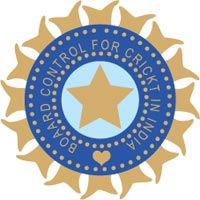
New Delhi: Criticizing the Board of Control for Cricket in India (BCCI) for refusing to accept the proposed National Sport (Development) Bill, Sports Minister Ajay Maken has made it clear that the ministry is not intended to control any sports federation, rather he emphasized on the need of transparency and accountability.
The bill, which faces stern opposition from some of the cabinet members and has been sent back to be reworked, aims to bring all sports federation under the landmark Right to Information (RTI) Act. This enables citizens to question the management of the sporting units on various matters, including finance.
The Bill in its present form certainly seems a positive step towards making sports bodies accountable in their functioning. The recent Commonwealth Games scam, which features some of the high profile members of sports bodies on the wrong side, has brought many irregularities in the management of sporting events, projects and subsequently institutions to the fore.
There has been a wide demand from all corners to bring sports bodies under the scope of public questioning, particularly on the matter of finance: their sponsorship, funding and management, if not under the direct government control.
Sports bodies like the BCCI has been very critical about the National Sports (Development) Bill while asserting that the Indian cricket board is a non-government organisation and doesn’t rely on government funding; hence, should be kept out of the purview of RTI.
While BCCI President Shashank Manohar maintained that cricket is the best administered sport in the country, where office-bearers are elected democratically by state associations and other associated units, the sports Minister maintained that BCCI was indeed a recipient of government concessions in areas such as land and exemptions or concessions in terms of income tax, entertainment tax etc.
"We have many sports which take funds from the government indirectly by the way of tax exemption, by the way of free land to them. Can the BCCI or the cricket body tell me how much they had to pay for Ferozeshah Kotla land? Can the BCCI tell me, can their people tell me, they have constructed a beautiful stadium in Dharamsala, how much they had to pay to the Himachal Government?" said Maken.
He also added that government did not want to curb the autonomy of these institutions, but all these sports bodies should be open to public questioning, as they are earning money from the people and every citizen has a right to know where the money is spent.
At the same time, the Minister also expressed his willingness to bring the bill back to the cabinet with certain changes, just to make it clear to sporting bodies like BCCI and the Indian Olympic Association (IOA) who are of the opinion to continue functioning in an autonomous manner.
One of the key features of the Sports Bill is that it seeks to bring all sporting bodies under the RTI Act. While some argue that the RTI cannot be applicable to private bodies not receiving any funds from the government, the act itself says that NGOs and private bodies receiving direct or indirect benefit from the government comes under the ambit of the law.
In addition, the Bill seeks to limit the tenure of all sports administrators to a maximum of 70 years of age and a maximum of three terms (12 years) for holding office. It also aims to reserve at least 25 percent posts for former players in respective federations.
|
|
Read More: Delhi


Comments: